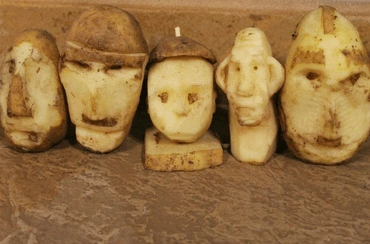Head

The head is the part of us that is highest, which means in a representative sense that it is what is closest to the Lord. Because of this the head represents what is inmost in us, the thing at the center of our being. In most cases this means intelligence and wisdom, since most of us are in a state of life in which we are led by our thoughts and reason. In the case of the Lord, however, it often represents His perfect love. And in many cases the head is used to represent the whole person.
(Odkazy: Apocalypse Explained 577; Apocalypse Revealed 538, 823; Arcana Coelestia 7859, 9656, 10011)
Arcana Coelestia # 2148
2148. That 'he lifted up his eyes' means that He saw within Himself is clear from the meaning of 'lifting up the eyes'. By 'eyes' in the Word is meant interior sight, or the understanding, as becomes clear from the places quoted in 212, and therefore by 'lifting up the eyes' is meant seeing and perceiving the things which exist above oneself. Things that are interior are expressed in the Word by those that are higher, as in the expressions 'looking upwards', 'lifting up the eyes to heaven', and 'thinking high things' - the reason being that man imagines heaven to be on high, or up above himself, though in fact it is not on high but exists in things that are internal; when the heavenly things of love are present in a person, his heaven exists within him, see 450. From this it is plain that 'lifting up the eyes' means seeing within oneself.






